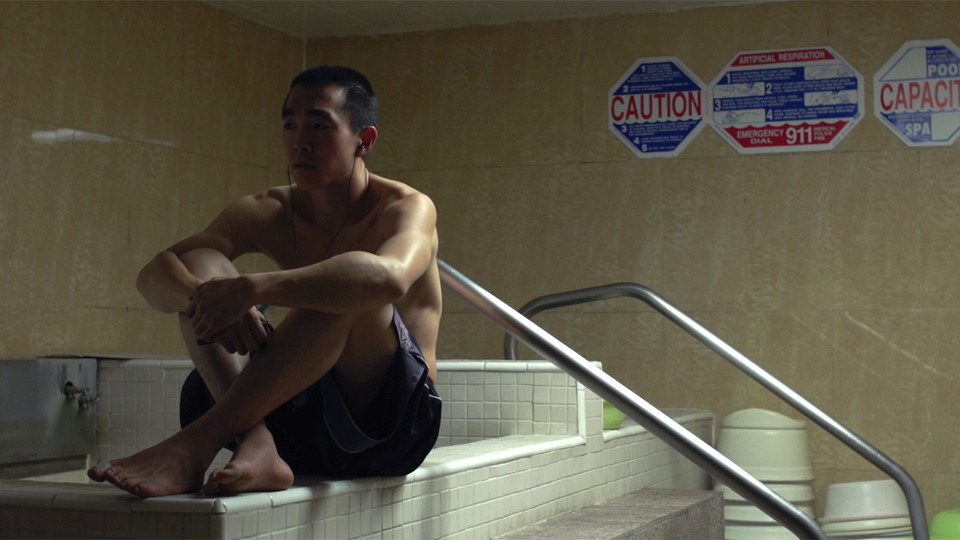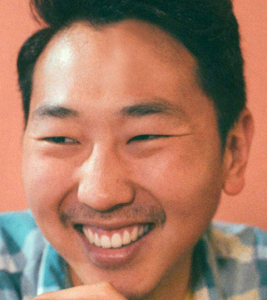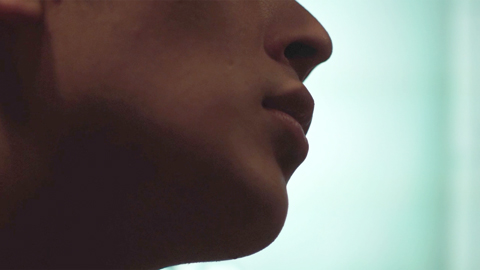
 In his forthcoming film, Spa Night, Los Angeles-based filmmaker Andrew Ahn, pictured left, goes beyond the surface benefits of spas, exploring how the hallowed walls are a space of culture and tradition. Ahn, 28, spoke to Insider’s Guide to Spas, about the film’s inspiration and how spas have informed his own cultural identity.
In his forthcoming film, Spa Night, Los Angeles-based filmmaker Andrew Ahn, pictured left, goes beyond the surface benefits of spas, exploring how the hallowed walls are a space of culture and tradition. Ahn, 28, spoke to Insider’s Guide to Spas, about the film’s inspiration and how spas have informed his own cultural identity.
What’s the inspiration behind Spa Night?
I am fascinated by Korean spas. Each person who walks into a spa comes in with a story. Every person has a life outside the spa, a life full of characters, drama, and conflict. And then, when we take off our clothes and enter the spa, life pauses. We want to relax. We want to leave that world for just a little while. We show our naked bodies in the spa, but our lives are well hidden. This was the start of the film for me. I wanted to know more about these people. I wanted to know more about why they come to Korean spas. The film really evolved from here, but this was the first spark, the first question I asked myself when starting the development process for the screenplay.
When we take off our clothes and enter the spa, life pauses. We want to relax. We want to leave that world for just a little while. We show our naked bodies in the spa, but our lives are well hidden. This was the start of the film for me.
How do you view spas now—how do they fit into your past, as well as your present?
Spas have always been a very cultural space for me. I feel very Korean when I’m at a Korean spa. I think as I’ve grown up, I’ve discovered the more therapeutic aspects of the spa, both physical and emotional. The way the water feels, the way the heat relaxes—it’s a time and space to heal. I’m really thankful for this. I think we all need a moment to get away from the world and de-stress.
How would you compare the cultures of Korean and American spas?
Korean spas are very different from American spas! I think Korean spas feel more everyday than American spas. I think a trip to an American spa is often seen as a treat or a splurge. But Korean spas are generally cheaper and less about the pampering, more about the utility. You get clean. You recharge. They’re also very different physical spaces. Korean spas have low, waist-tall showers. You sit on a little stool to scrub and wash. That’s not very American. One of the funniest differences is that in American spas, people use their towels to cover up a lot. In Korean spas, you let it all hang out!
You said that you felt most Korean while at the spa. What did you mean by that? How have spas helped you find your identity or connect to it more?
The spa is a place of tradition for me. It’s a cultural ritual. When I was a child, my dad would tell me stories about how he would go to spas in Korea with his dad. In that way, I feel like spas are a part of who I am and where I came from. Also, whenever I’m at a Korean spa, I’m hyper-aware of my body—how it looks and how it feels. Emotionally, mentally, I feel very American. Physically, I’m one-hundred percent Korean, and being naked in a Korean spa reminds me of that.
When you finally visited the spas where gay men hooked up, how did your preconceptions about it differ from reality?
 Korean spas serve as spaces for men to hang out, to relax with each other. You’ll often see groups of men chat naked in the steam room. The spa serves a social purpose. And I think you can argue that these hook ups are just an extension of that. It’s just male bonding, taken one step further. But it was still a shocking discovery! I think it really confused me because as a gay Korean-American man. I would have never thought that these two sides of me would co-exist in the same space so completely.
Korean spas serve as spaces for men to hang out, to relax with each other. You’ll often see groups of men chat naked in the steam room. The spa serves a social purpose. And I think you can argue that these hook ups are just an extension of that. It’s just male bonding, taken one step further. But it was still a shocking discovery! I think it really confused me because as a gay Korean-American man. I would have never thought that these two sides of me would co-exist in the same space so completely.
Spas have always been a very cultural space for me. I feel very Korean when I’m at a Korean spa. I think as I’ve grown up, I’ve discovered the more therapeutic aspects of the spa, both physical and emotional. The way the water feels, the way the heat relaxes—it’s a time and space to heal.
What do you hope people take away from this film?
My hope is that people understand that LGBTQ Korean-Americans exist and that we all have our own struggles to overcome and our own stories to tell. In Spa Night, David overcomes social pressure to finally come out to himself. I think we grow up surrounded by so much expectation. Our parents have expectations for who we will be. Society has expectations. And all of this keeps us from knowing who we really are and what we really want. David does something in this film that takes courage and strength. He owns his desires and understands who he is.
You say the movie asks what it means to be gay and Korean-American. But tell me, personally, how would you answer that question?
This is a really difficult question. I think every member of the LGBTQ Korean-American community has a different answer to this. But for me, right now, I think being gay and Korean-American boils down to understanding what I want. I want to have a relationship to my Korean culture and to my family. I also want to be an out and proud gay man. If I want both things, I can deal with the contradictions that come up. For example, just this past weekend, I was at a friend’s wedding. The groom is Korean, and the wedding reception included a traditional Korean ceremony called the paebaek. As I watched this, I came to realize that I really wanted to participate in this ritual, even though it’s meant for a husband and wife. And although I may never get to participate in this ritual, just wanting to connects me to my Korean identity. And that’s good enough for me.
Editor’s note: Andrew Ahn graduated from Brown University and received an MFA in Film Directing from the California Institute of the Arts. His short film, Dol (First Birthday), premiered at the 2012 Sundance Film Festival and received the Outfest Grand Jury Award for Outstanding Dramatic Short Film. Ahn participated in the Sundance Screenwriters Lab, the Film Independent Screenwriting Lab, and the Film Independent Directing Lab with Spa Night. The project also received a Sundance Institute Cinereach Feature Film Fellow grant. It is currently seeking financing through a Kickstarter campaign: Kickstarter.com/Spa-Night
Editor’s Note: This interview was originally published October 22, 2014.
Feifei Sun
Feifei Sun is a writer and editor based in Atlanta. She is a former editor of TIME, where she oversaw the magazine’s style and design content and worked on special issues like the TIME 100 and Person of the Year. Before that, she was an editorial assistant at Vanity Fair, blogging about photography and fashion. Her writing has also appeared in Real Simple, WebMD, and Organic Spa, among other publications.